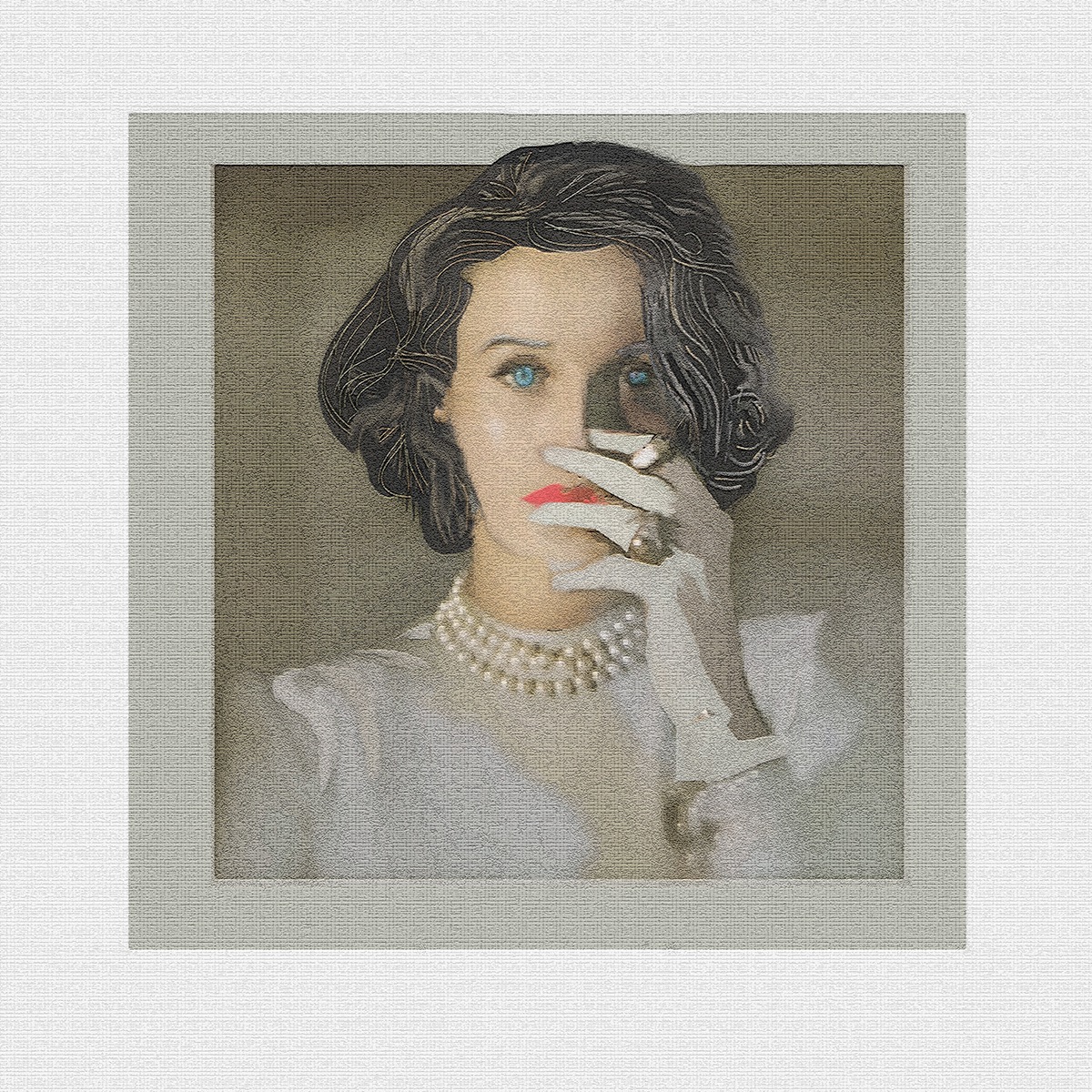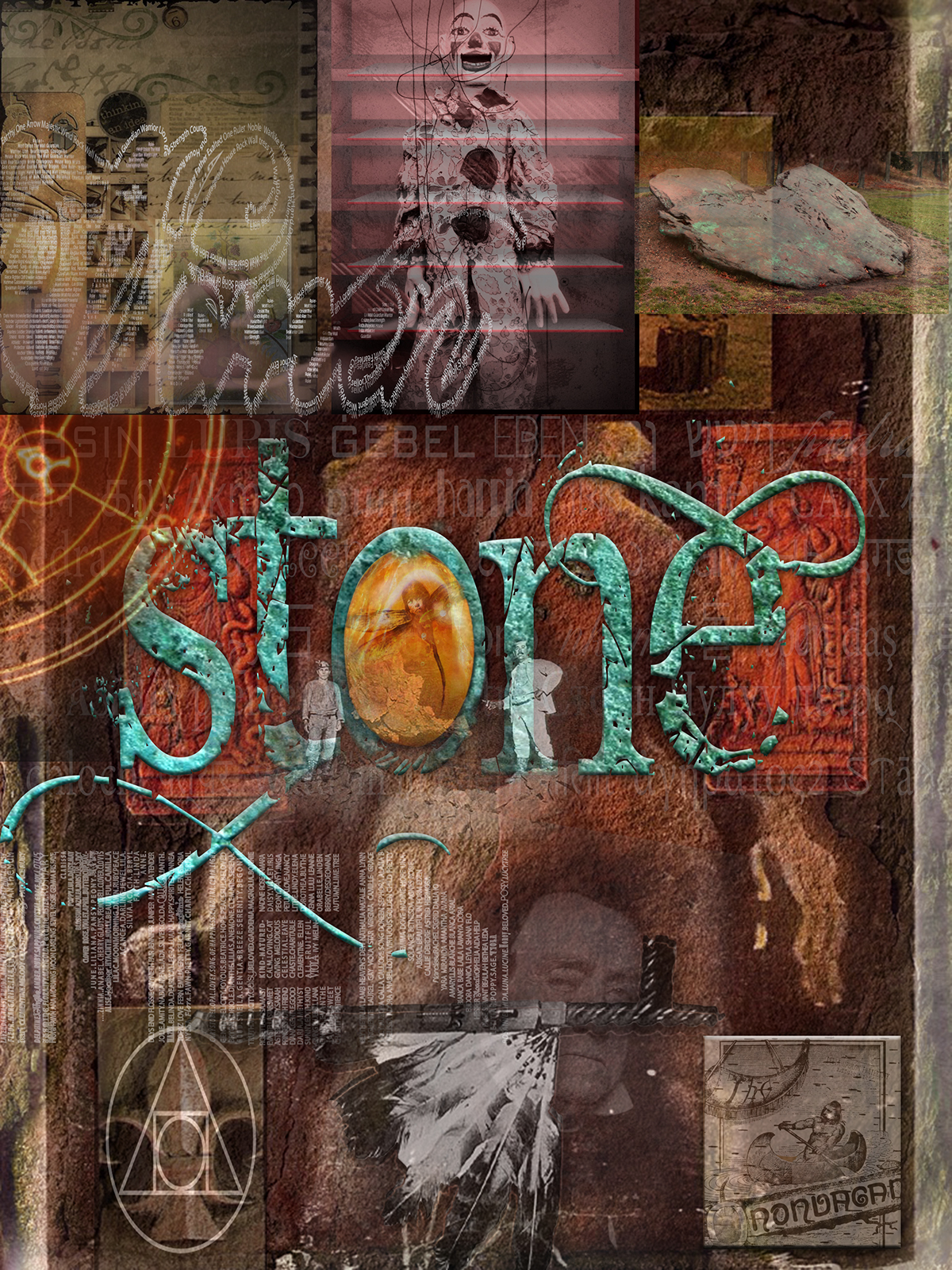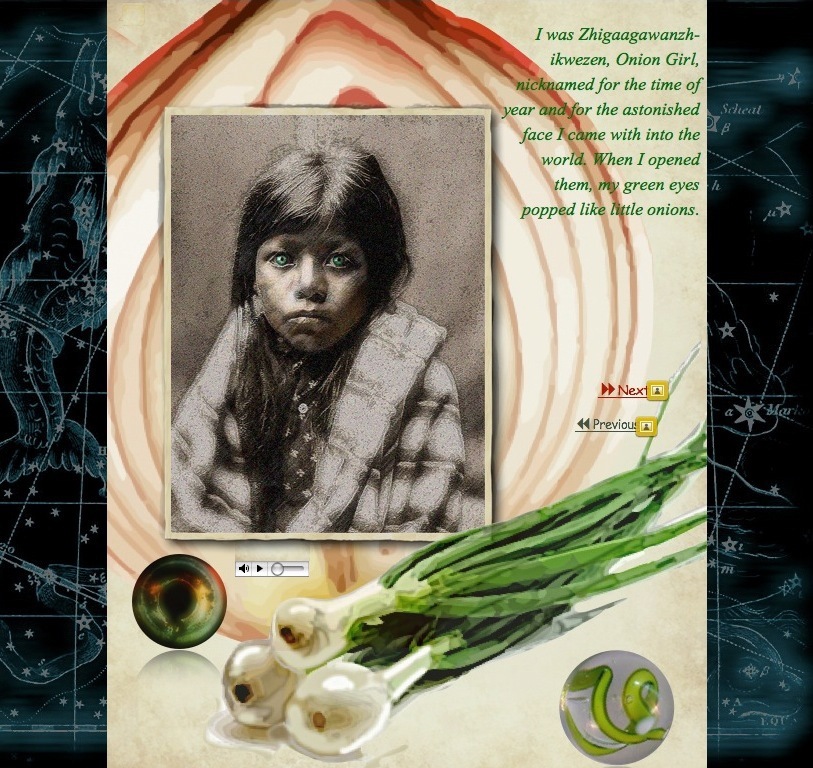
The Depths of Superior Alchemy is an illustrated ebook in progress. The story follows the main character Livreth McKenneth through her unique identity formation in 1950s midwestern America. Her story is told primarily from the point of view of an Ojibwe ghost who influences her formative years--then later, by her daugher. Livreth, descending from the Summer Walkers (tinkers of the western isles) of Scotland and born with the islanders' second sight, journeys from her unsatisfying role as a housewife in Copper Country onto the stage in Chicago, where she forms a romantic relationship with the woman who is her producer. Livreth eventually finds her place in life through soul searching as the two women contend with the prejudices of the McCarthy era. Eventually they establish an experimental film studio in New Mexico advocating civil liberties. Ultimately, the book is about the richness of American identity and, in the spirit of Gertrude Stein's The Americans, makes the argument that a deeper history than we know flows through our veins every moment.

The main character, Livreth McKenneth


Depicted here are the Mossy Isles, the Hebrides islands from which Livreth's family arrived to the Americas during the HIghland Clearances.

The narrator Vida describes her afterlife as though staring through an encaement of Amber.


When Vida first arrives in the afterlife she calls Purgatory, she is standing before the grandmother clock at her husband's home and seeing her reflection as a dragonfly with odd appendages.

Vida first encounters Livreth at the Tamarack theater house, where Livreth listens and hears her voice.



When we first encounter the main character as an adult, she is playing the role of Lucrezia Borgia on stage.

Vida's narration is interspersed with memories of her sister Lupine, an outspoken woman who remained among the Nishiinaabe all her life selling inauthentic native trinkets to tourists.



Also recalled by Vida are several stories of the anglocizing of Copper Country.

Our narrator had been called Vidalia by her Anglo friends. This excerpt from the book explains the origins of her name--
I never received a true name in my Earth life. My husband eventually settled on Vida, his shortened version of Vidalia. Because I was named the first time in the season during which my Nibiishinaabeg relatives harvested wild onions in the muck near the Chtiquamegon River. My true name was to reveal itself later, when I’d earned it. In the meantime, I was Zhigaagawanzh-ikwezen, the Onion Girl, nicknamed for the time of year but also for the sharp look I came with into the world. Once opened, my eyes popped out in surprise like little onions. Zhigaagawanzh-ikwezen the Onion Girl was a name I sat with on Earth longer than originally intended. One day I should be given my real name, using Plan A: an elderly relative would choose it for me and it would be a name I had grown into. Plan B? Took another path…
Eventually, the narrator's Nibiishinaabeg name, unpronounceable to her consorts, will be remolded as Vidalia, after the onion.

In mourning her absence of a true name, Vida says:
"Nibiishinaabeg elders say to speak the name is to begin the story. To name something well is to sum it up. But life is a recipe—recorded posthumously. The last thing you do is name the dish. In Purgatory, this practice of posthumous naming takes up much of our energy. Here, in this “Last Place,” we name our lost experiences. We name and re-name ideas and observable conditions of the living. We name feelings we no longer have except as phantom pains. And we name ourselves."

At the start of Livreth's adult story, she feels trapped in an unhappy marriage and unqualified for her life as a tradiitonal 1950s housewife.

A depiction of concerns that surround Livreth's life as a wife.




